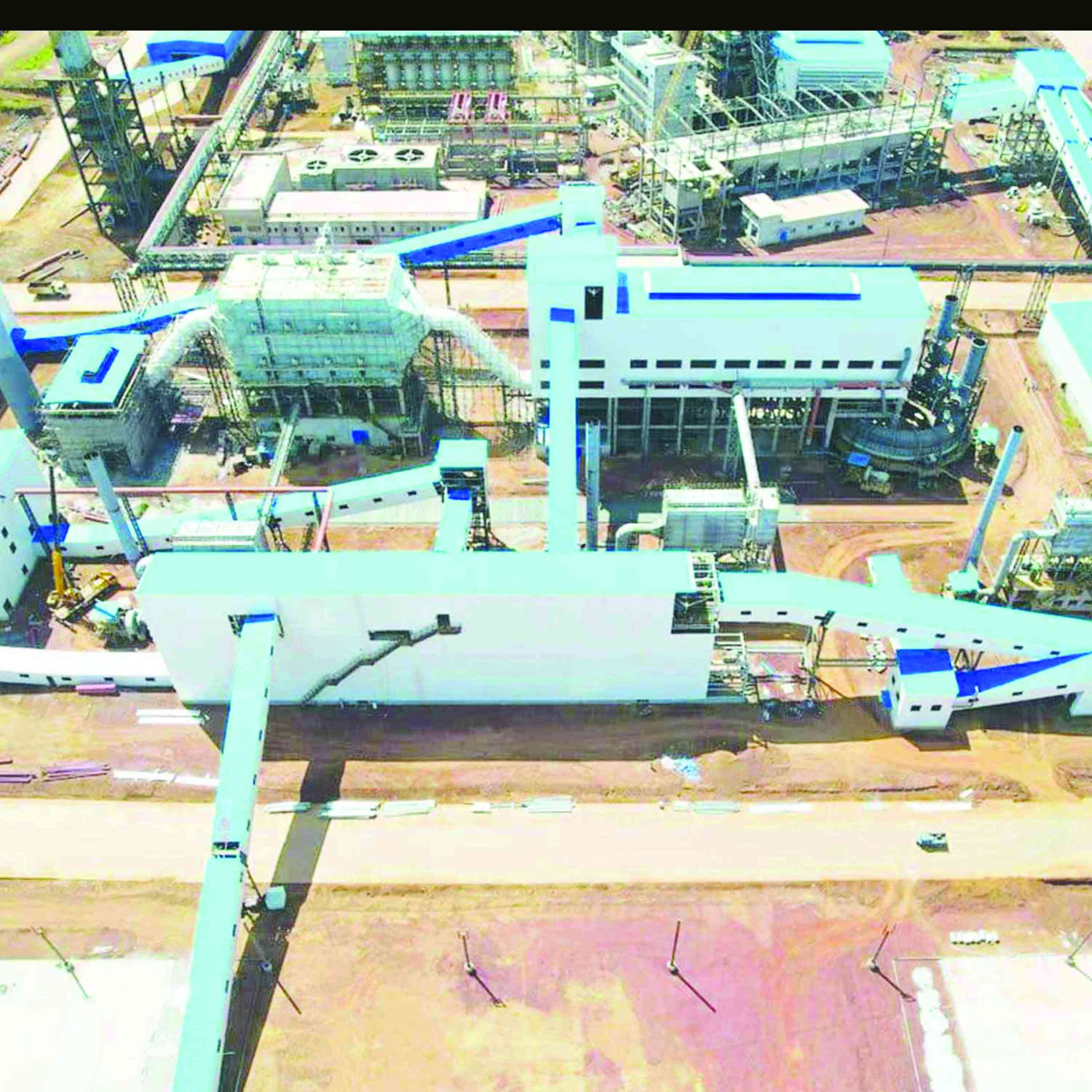
The Chinese-owned Dinson Iron and Steel Company (Disco, pictured) is racing to align its operations with new European Union (EU) sustainability rules in a strategic bid to penetrate one of the world’s most demanding export markets, the Zimbabwe Independent has learnt.
The US$1,5 billion Manhize-based steel plant, a project under China’s Tsingshan Group, began production in July, churning out 300 tonnes of deformed steel bars daily.
With its full capacity pegged at 600 000 tonnes per annum, Disco now has its eyes firmly set on the EU — a market that could redefine its growth trajectory.
“We are not exporting to the EU, and we are working on EU markets,” Wilfred Motsi, project manager at Disco, confirmed the steelmaker’s global ambitions this week. “Our marketing staff is in Europe looking for markets,” he added.
Disco must meet the EU’s environmental, social and governance (ESG) framework — a stringent directive introduced in 2024 requiring manufacturers exporting to Europe to demonstrate strong sustainability performance.
Full compliance is expected by 2027, and failure to align may shut out potential exporters.
Motsi revealed that the firm was working to embed ESG across its entire operation.
“Disco is earmarked to be the biggest producer of steel on the continent, and with such a growth projection, we can only achieve and benefit if we are ESG compliant. We are complying by aligning ourselves with existing standards that ensure our steel is green.”
- CCC urged to push for dialogue over reforms
- A peep into Matenganyika’s artistic closets
- The Bioskop Short Film Competition is back
- Mangwe farmers benefit from agric projects
Keep Reading
ESG criteria have become a powerful force in global trade — evaluating firms on their environmental footprint, social responsibilities, and governance practices. In capital intensive sectors such as steel manufacturing, this framework presents both a challenge and a competitive edge for first movers.
In Zimbabwe, ESG compliance is gaining traction. Under Statutory Instrument 134 of 2019, the Securities and Exchange Commission of Zimbabwe mandated ESG reporting for all firms listed on the Zimbabwe Stock Exchange and Victoria Falls Stock Exchange.
Although Disco is not listed, Motsi said the company was taking cues from best practice.
An internal ESG board is being established, and community engagement has become central — particularly as more than 100 families from Mushenjere Village were displaced during the plant’s construction.
“Community engagement is an ongoing process, and it is at the heart of the ESG department,” Motsi said.
“Engagement with our immediate community, traditional leadership, and government is underway to establish a board.
“We are also closely following the Ministry of Industry and Commerce engagements on the previous community ownership share trusts to see how best we can implement a sustainable community programme that can enhance the lives of not only the immediate local community but the country as a whole.”
The ESG framework also demands robust environmental management. Motsi pointed to Disco’s efforts to reduce its ecological footprint.
“We carry out responsible mining and beneficiation, and at every stage of production, we are bound by our commitment to environmental, social, and governance issues,” he said.
“The ISO certification we have been awarded is a testament to our compliance with ESG issues. We have still gone above and beyond by closely monitoring and managing our emissions.”
“Dust, gas, and heat are all captured and recycled to create power. Our factory has detectors and alarms to monitor the emissions and possible leakages, for example, gas leakages.
“Periodic monitoring and testing of the air and water bodies surrounding the plant is done to ensure we are proactive in managing our waste and emissions.”
Experts say these reforms are not optional for exporters eyeing the EU.
Tafara Chiremba, economic governance officer at the Zimbabwe Environmental Law Organisation, said companies that want to trade with Europe must conform to the bloc’s corporate sustainability due diligence directive, which was passed in 2024 but becomes mandatory in 2027.
“The EU corporate sustainability due diligence directive was passed in 2024, but compliance is expected in 2027. So, all companies that are exporting into the EU are expected to align their ESG systems with the directive and comply,” Chiremba said.
“There is a window that is there for companies to receive the much-needed training and skills on the Global Reporting Initiative standards so that they comply with the EU corporate sustainability due diligence directive once compliance is required,” he added.
Disco’s rapid rise mirrors China’s expanding influence in Zimbabwe’s mining and manufacturing sectors. But ESG could now become the new passport to global markets, especially in Europe, where regulators are tightening the screws.






